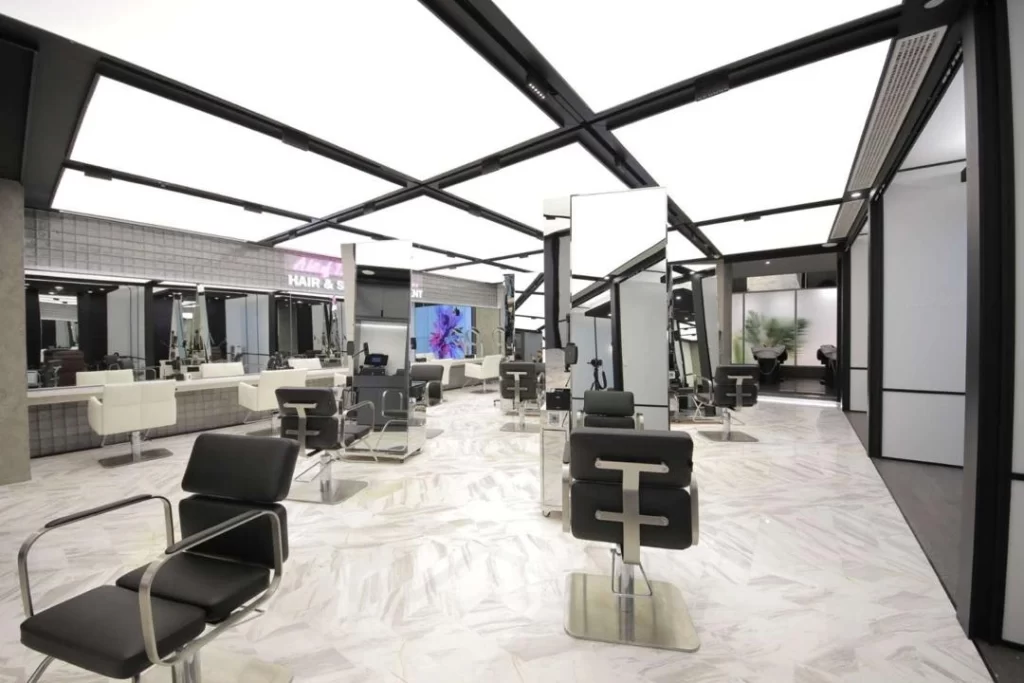In a survey of 1,001 men and women aged 18 and over conducted by Ifop for Provalliance, French people consider hairdressing salons an essential part of their daily lives and essential to the local economy. Provalliance Group is proposing an innovative HR policy for the sector.
Provalliance, a global leader in hair salons with chains like Franck Provost, Jean Louis David, Saint Algue, Coiff&Co, and others, has released the findings of a 2024 study that emphasizes the French people’s inseparable bond with their hairdresser and the sector’s significance to the economy. The study emphasizes how important the hairdressing profession—France’s second-largest craft industry—is to the everyday lives of the French, for whom this appointment is still a pleasure they do not want to let go of.
We can summarize by saying that the French consider the hairdresser an essential local business. Nearly 9 out of 10 French people (86% of respondents) consider the hairdresser to be a local business essential to their daily lives. More than 3 out of 5 French people also believe that the hairdressing profession embodies genuine French know-how, requiring expertise in its own right.
81% of respondents (83% for women) feel they have established a close relationship with their hairdresser. This closeness is often accompanied by a high level of loyalty, especially among men. A visit to the hairdresser is often perceived as an obligation by men, especially younger ones, almost 9 out of 10 men (86% of those surveyed) say they are loyal to their hairdresser, compared with 8 out of 10 women (79% of those surveyed).
The study also reveals that for women, an appointment with their hairdresser is a real moment of well-being and pleasure. 81% of French women say it’s a privileged and indispensable moment, and 70% define it as a moment of absolute relaxation, deserved and necessary. For 69% of them, the hairdressing experience is a real confidence-builder, helping them to feel more confident and better about themselves.
When it comes to choosing a salon, the majority of French people base their decision on the price of services (58%), the hairdresser himself/herself (53%) and the proximity of the salon (46%).
Today, hairdressing is the second-largest crafts sector in France, with over 100,000 establishments throughout the country. The profession employs nearly 175,000 people, including 107,000 salaried employees and 19,000 apprentices, generating sales of 6.1 billion euros. Despite its undeniable importance to the French economy, hairdressing remains an undervalued sector, not sufficiently promoted to young people in their training.
The profession is facing a shortage of manpower, weakening the entire sector in France: 17% of establishments were looking to hire without success in 2021, and 42% had to wait more than 6 months before hiring. As a result, recruitment has become a top priority for hairdressing professionals. Provalliance is working to restore the profession to its former glory and calls on all public and economic authorities to maintain the momentum around these professions, which are essential to our society.
To support this dynamism, the Provalliance Group is proposing an innovative HR policy for the sector, in order to continue to attract future talent and reveal new vocations. The Group is offering much better working conditions to its employees. They can now choose the working week they prefer—4, 4.5 or 5 days a week—as well as Saturdays off, co-optation bonuses, luncheon vouchers, and access to an employee platform in order to benefit from preferential rates from over 1,000 brands, leisure activities, and services.
Cédric Losdat, Managing Director of the Provalliance Group’s Coiffure BU declared: “We’re particularly proud to see how attached the French are to our profession. With nearly 100,000 professionals in the trade, hairdressing is an integral part of everyday life in France and remains a vital component of the economy. The hairdressing salon is sometimes the last shop in a village, and the hairdresser is the only weekly contact for many isolated people. This profession is central to the equilibrium of our societies, as it creates social ties and self-confidence. As an industry leader, we are proud to be a flagship of the French economy. We have an essential role to play in maintaining the attractiveness of this profession”.







